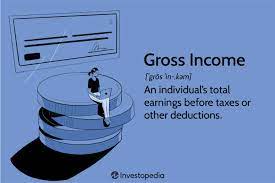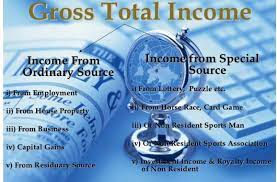In the realm of personal finance and taxation, it’s essential to grasp the distinction between two significant concepts: Gross Income Tax and Earned Income Tax. While both play a role in an individual’s financial obligations, they differ in their scope and application. Let’s explore the key differences between Gross Income Tax and Earned Income Tax to provide clarity on these important facets of taxation.

Getting Around Taxes: Recognising the Difference Between Earned and Gross Income Tax
Understanding Gross Income Tax
Definition: Gross Income Tax refers to the taxation imposed on an individual’s total income before any deductions or adjustments. It encompasses all sources of income, including wages, dividends, interest, rental income, and other forms of earnings.
Scope: Gross Income Tax provides a comprehensive view of an individual’s financial standing by considering all income streams. It serves as the starting point for calculating an individual’s tax liability.
Taxable Components: All sources of income contribute to the calculation of Gross Income Tax. This includes income from employment, business ventures, investments, and other financial activities.
Exploring Earned Income Tax
Definition: Earned Income Tax, on the other hand, specifically focuses on the taxation of income earned through active participation in employment or self-employment. It excludes passive sources of income, such as dividends and interest.
Scope: Earned Income Tax hones in on the earnings directly attributed to one’s labor or services. It is particularly relevant for individuals engaged in employment or entrepreneurial activities.
Taxable Components: Wages, salaries, tips, and self-employment income are the primary components subject to Earned Income Tax. Investment income and other passive forms of earnings fall outside the scope of this tax.
Key Differences
- Scope of Income:
- Gross Income Tax: Encompasses all sources of income, providing a comprehensive view of an individual’s financial landscape.
- Earned Income Tax: Focuses specifically on income earned through active participation in employment or self-employment.
-
Taxable Components:
- Gross Income Tax: Includes all forms of income, such as wages, dividends, interest, and rental income.
- Earned Income Tax: Targets earnings directly tied to labor or services, excluding passive income streams.
- Relevance to Employment:
- Gross Income Tax: Applies universally to all income sources, irrespective of the nature of the earning activity.
- Earned Income Tax: Primarily applicable to individuals engaged in employment or self-employment activities.
Conclusion: Navigating Tax Obligations
In conclusion, understanding the distinction between Gross Income Tax and Earned Income Tax is crucial for navigating one’s tax obligations. While Gross Income Tax provides a holistic view of all income sources, Earned Income Tax zooms in on the earnings derived from active involvement in employment or entrepreneurship. Both concepts contribute to the overall taxation framework, impacting individuals’ financial planning and compliance with tax regulations. As individuals assess their income and financial activities, this knowledge proves invaluable in making informed decisions and fulfilling their tax responsibilities.
















